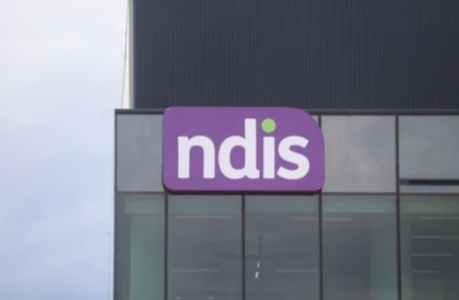Big changes hit NDIS funding—what it means for you
By
Gian T
- Replies 0
If you or someone you love relies on the National Disability Insurance Scheme (NDIS), you’ll want to pay close attention—because some of the biggest changes in years are about to roll out.
With nearly $50 billion in funding and more than 62,000 Aussies depending on it, the NDIS is a lifeline for many, but it’s also one of the most complex government programs around.
Even the government admits it’s a bit of a maze!
So, what’s actually changing, when will it happen, and—most importantly—how might it affect you or your family? Let’s break it down, with a few extra insights and tips.
Since the NDIS first arrived in WA, our state has always done things a little differently. But from 1 July, that’s about to change.
WA will now pay a fixed, up-front contribution to the NDIS each year, while the Commonwealth government will cover the rest.

This means service providers will have a more predictable pool of money to work with, which should (in theory) make planning and delivering services a bit smoother.
NDIS Minister Mark Butler has reassured everyone that this new funding model will secure the scheme’s future in WA, so those who rely on it can continue to get the support they need.
But that’s not all. A new WA advisory council—made up of people with lived experience and expert backgrounds—will be set up to keep an eye on how the NDIS is working and to advocate for users.
This is a positive step, as it means the voices of real people will be heard at the highest levels.
Alongside the funding shake-up, there are also some changes to how much providers can charge for certain services.
For example, therapists can now only bill 50% of their hourly rate for travel time, and there are cuts of up to $10 per hour for some services like physiotherapy, podiatry, dietetics, and psychology.
Both the new funding model and these pricing changes kick in from Tuesday, 1 July.
The state government says these changes are designed to help people in regional and remote areas, who often struggle to access services. But not everyone is convinced.
Some families in the north of WA, like Wickham mum Janel Went, worry that their children’s access to vital therapies could be reduced.
For young kids, in-person therapy is crucial, and travelling long distances just isn’t practical.
Meanwhile, service providers in the south, like behaviour analyst Liz Martin, say they’ve had to absorb rising costs for years without any increase in therapy pricing.
The new rules on travel costs could make it even harder for them to offer outreach services to families who need them most.
The NDIS insists that no one’s individual plan will be cut because of these price changes, and that the market is strong enough to keep services available.
But as always, the real test will be how things play out on the ground.
Sadly, wherever there’s a big pot of money, there are always a few bad apples.
The NDIS has been targeted by criminals, with an estimated $8 billion in funding being rorted by crime groups in the last financial year alone.
That’s money that should be going to people who genuinely need support.
To tackle this, the federal government passed the ‘Getting the NDIS Back on Track’ bill, giving the agency more power to crack down on fraud and abuse.
It’s a welcome move, but it’s also a reminder of how important it is to keep the system fair and sustainable for everyone.
In the last financial year, the cost of supporting NDIS participants in WA was $3.6 billion. The federal government paid $2.3 billion, and the WA government chipped in $1.3 billion.
Under the new agreement, WA’s contribution is expected to average about $1.5 billion a year, with the federal government also reimbursing WA for some administrative costs.
If you’re an NDIS participant, a carer, or a service provider, it’s a good idea to keep a close eye on your plan and your services over the next few months.
If you notice any changes or have concerns, don’t hesitate to reach out to your NDIS planner or local advocacy group.
And remember, the new advisory council is there to represent your interests, so if you have feedback or suggestions, make your voice heard!

Are you or someone you know affected by the NDIS changes in WA? Do you think the new funding model and pricing rules will help or hinder access to services? Have you experienced any issues with NDIS reporting or fraud? We’d love to hear your thoughts and experiences in the comments below.
Read more: Could NDIS reform mistakes leave you or your loved ones at risk? Find out how
With nearly $50 billion in funding and more than 62,000 Aussies depending on it, the NDIS is a lifeline for many, but it’s also one of the most complex government programs around.
Even the government admits it’s a bit of a maze!
So, what’s actually changing, when will it happen, and—most importantly—how might it affect you or your family? Let’s break it down, with a few extra insights and tips.
Since the NDIS first arrived in WA, our state has always done things a little differently. But from 1 July, that’s about to change.
WA will now pay a fixed, up-front contribution to the NDIS each year, while the Commonwealth government will cover the rest.

NDIS funding in Western Australia will be changed to a fixed annual payment from 1 July, with remaining costs covered by the Commonwealth. Credit: Facebook
This means service providers will have a more predictable pool of money to work with, which should (in theory) make planning and delivering services a bit smoother.
NDIS Minister Mark Butler has reassured everyone that this new funding model will secure the scheme’s future in WA, so those who rely on it can continue to get the support they need.
But that’s not all. A new WA advisory council—made up of people with lived experience and expert backgrounds—will be set up to keep an eye on how the NDIS is working and to advocate for users.
This is a positive step, as it means the voices of real people will be heard at the highest levels.
Alongside the funding shake-up, there are also some changes to how much providers can charge for certain services.
For example, therapists can now only bill 50% of their hourly rate for travel time, and there are cuts of up to $10 per hour for some services like physiotherapy, podiatry, dietetics, and psychology.
Both the new funding model and these pricing changes kick in from Tuesday, 1 July.
The state government says these changes are designed to help people in regional and remote areas, who often struggle to access services. But not everyone is convinced.
Some families in the north of WA, like Wickham mum Janel Went, worry that their children’s access to vital therapies could be reduced.
For young kids, in-person therapy is crucial, and travelling long distances just isn’t practical.
The new rules on travel costs could make it even harder for them to offer outreach services to families who need them most.
The NDIS insists that no one’s individual plan will be cut because of these price changes, and that the market is strong enough to keep services available.
But as always, the real test will be how things play out on the ground.
Sadly, wherever there’s a big pot of money, there are always a few bad apples.
The NDIS has been targeted by criminals, with an estimated $8 billion in funding being rorted by crime groups in the last financial year alone.
To tackle this, the federal government passed the ‘Getting the NDIS Back on Track’ bill, giving the agency more power to crack down on fraud and abuse.
It’s a welcome move, but it’s also a reminder of how important it is to keep the system fair and sustainable for everyone.
In the last financial year, the cost of supporting NDIS participants in WA was $3.6 billion. The federal government paid $2.3 billion, and the WA government chipped in $1.3 billion.
Under the new agreement, WA’s contribution is expected to average about $1.5 billion a year, with the federal government also reimbursing WA for some administrative costs.
If you’re an NDIS participant, a carer, or a service provider, it’s a good idea to keep a close eye on your plan and your services over the next few months.
If you notice any changes or have concerns, don’t hesitate to reach out to your NDIS planner or local advocacy group.
And remember, the new advisory council is there to represent your interests, so if you have feedback or suggestions, make your voice heard!
Key Takeaways
- Western Australia is changing how it funds the NDIS, moving to an upfront, fixed annual payment to the scheme from 1 July, with the Commonwealth covering the rest, aiming for more predictable funding for service providers.
- Several NDIS pricing changes start this week, including cuts to some therapy rates and only half-rate billing for therapist travel, which has raised concerns among regional providers about access and service costs.
- A new WA advisory council made up of people with disability and experts will be established to guide the government and advocate for NDIS users.
- Ongoing issues around misuse of NDIS funds have prompted federal reforms, including the ‘Getting the NDIS Back on Track’ bill to crack down on rorting, with multi-billion dollar losses estimated last year.
Read more: Could NDIS reform mistakes leave you or your loved ones at risk? Find out how







